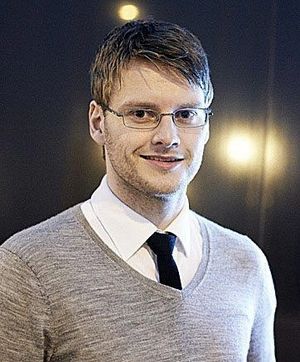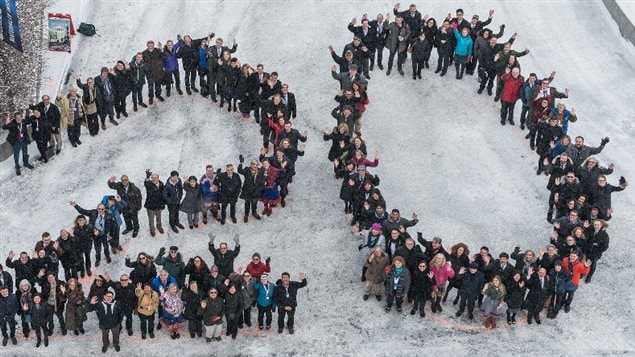The Arctic Council is celebrating its 20th anniversary this month.
The international forum has Canadian roots and was established on September 19, 1996 when the world’s circumpolar nations signed the Ottawa Declaration, outlining the new forum’s focus: sustainable development and environmental protection.
To mark the anniversary, Eye on the Arctic is bringing you a series of interviews this month with northern experts from around the globe. We’re getting their perspectives on the Arctic Council’s successes, stumbles and the challenges ahead. (For our previous interview from Canada, click here; or from Finland, click here.)
Today, we bring you our conversation with Egill Þór Níelsson, executive secretary of the China-Nordic Arctic Research Centre in Shanghai.
He spoke to Eye on the Arctic from Akureyri, Iceland.
Eye on the Arctic: How has the Arctic Council evolved as an organization since its inception?

Egill Þór Níelsson. (Egill Bjarki/Courtesy Egill Þór Níelsson)
Egill Þór Níelsson: Sustainable development of the Arctic and the well-being if its inhabitants are still the prime drivers of the Arctic Council, but of course it’s become a more established unit and the unchallenged leading intergovernmental forum for Arctic cooperation. In that sense, it’s evolved quite a lot: the permanent secretariat in Tromso, having new observers from Asia and the European states – just to name a few factors.
How has the Arctic Council responded to increased international interest in the Arctic?
I think the response has been very good. With observers that can both observe and participate in the working groups or the Arctic Council, it has really opened up to that demand. It’s very important to note that climate change and security issues are still as important as they were 20 years ago, but you see new global drivers such as urbanization around the world, natural resource scarcity and globalization that make the Arctic more relevant, for example, for Asian countries. The fact that you have these global perspectives, and you have the Arctic Council opening up to them, and participating in them, I think that’s a very good blend.
What are some of its other main accomplishments?
The underlying knowledge from all the work that the Arctic Council, especially its working groups, does; for example the Arctic Marine Shipping Assessment. This work has been very important to underline what the region is about; promoting the scientific and knowledge factors of the Arctic.
Another very important factor is the agreements that are negotiated under the auspices of the Council: the oil-spill response agreement and the search and rescue agreement between the eight Arctic States. I think the Arctic Council has played a very important role in facilitating these sorts of cooperation initiatives.
Also, the Arctic Economic Council, although it’s now and probably should be, run by business for business, it’s an idea from the Arctic Council.
What would you like to see the Arctic Council do more of?
It could be better funded, in the sense that you could then have more in-depth research on many other things. When it comes to the ministerials, they provide a lot of good input but they’re not always too high on the agenda of all Arctic states. But I think we’re really seeing a change, with the Arctic becoming a bigger aspect of foreign policy for most of the Arctic states – which is positive.
Why should the world be paying more attention to the Arctic Council’s work?
They’ve been producing a lot of important knowledge-based input for the last 20 years. When it comes to what the Arctic Council is and has been doing, for me, it’s very media-worthy. But it can be hard to grab the attention of the media. And when it comes to the global aspects, obviously the Arctic is in a very different place than it was only five years ago. So the Arctic Council is probably the most important underlying factor of the cooperation that has been facilitated there.
The above Q&A has been edited and abridged.
For Eye on the Arctic’s extended conversation with Egill Þór Níelsson listen here:
ListenWrite to Eilís Quinn at eilis.quinn(at)cbc.ca
Related stories from around the North:
Canada: Arctic Council celebrates 20 years of northern cooperation, Eye on the Arctic
Finland: The Arctic Council at 20 – View from Finland, Eye on the Arctic
Norway: Arctic Council aims to boost business, The Independent Barents Observer
Russia: Russia invites Arctic Council on icebreaker tour, The Independent Barents Observer
Sweden: Arctic Council – From looking out to looking in, Blog by Mia Bennett, Cryopolitics
United States: Arctic Council – 20 years in a warming world, Deutsche Welle








For reasons beyond our control, and for an undetermined period of time, our comment section is now closed. However, our social networks remain open to your contributions.